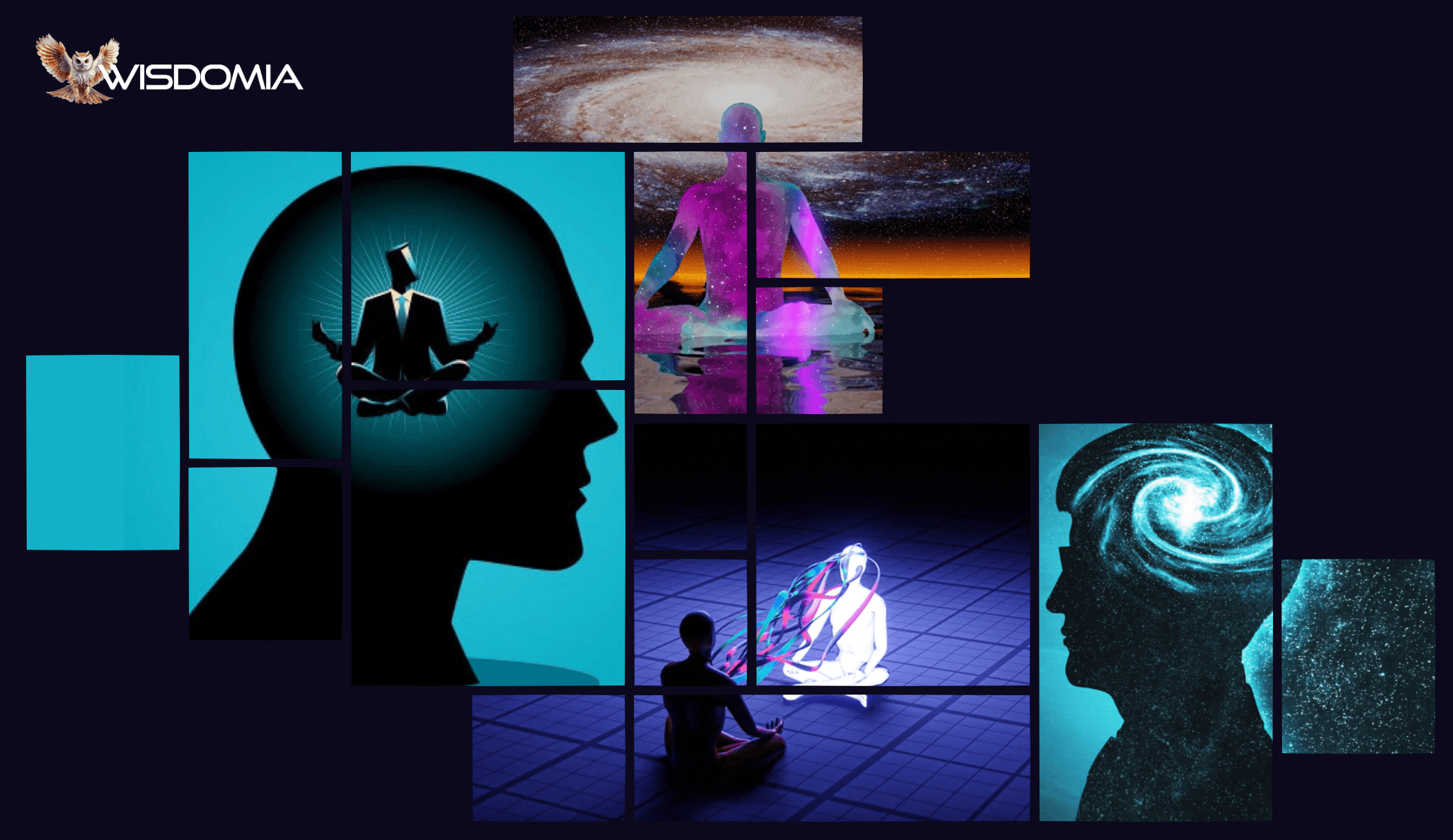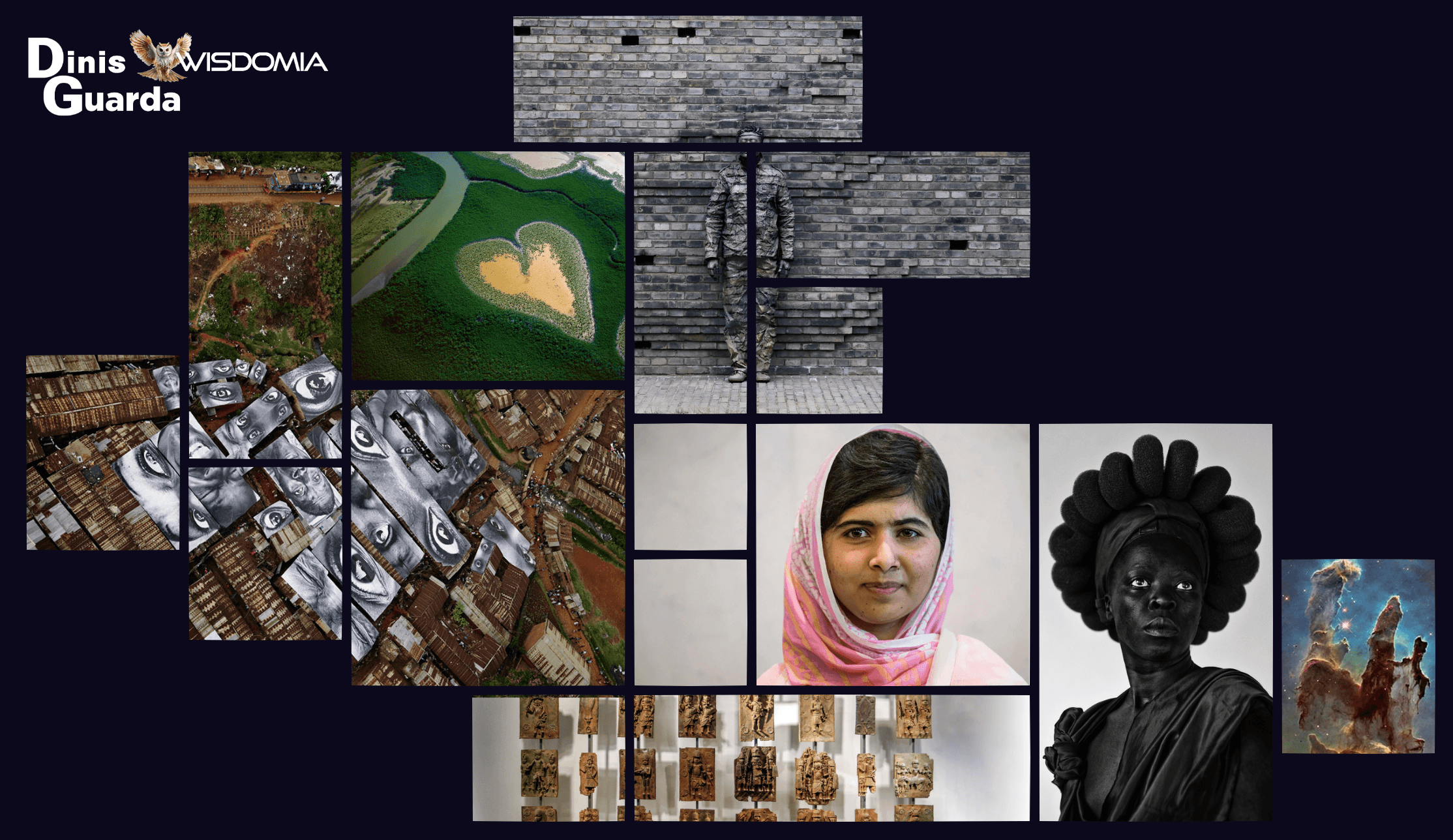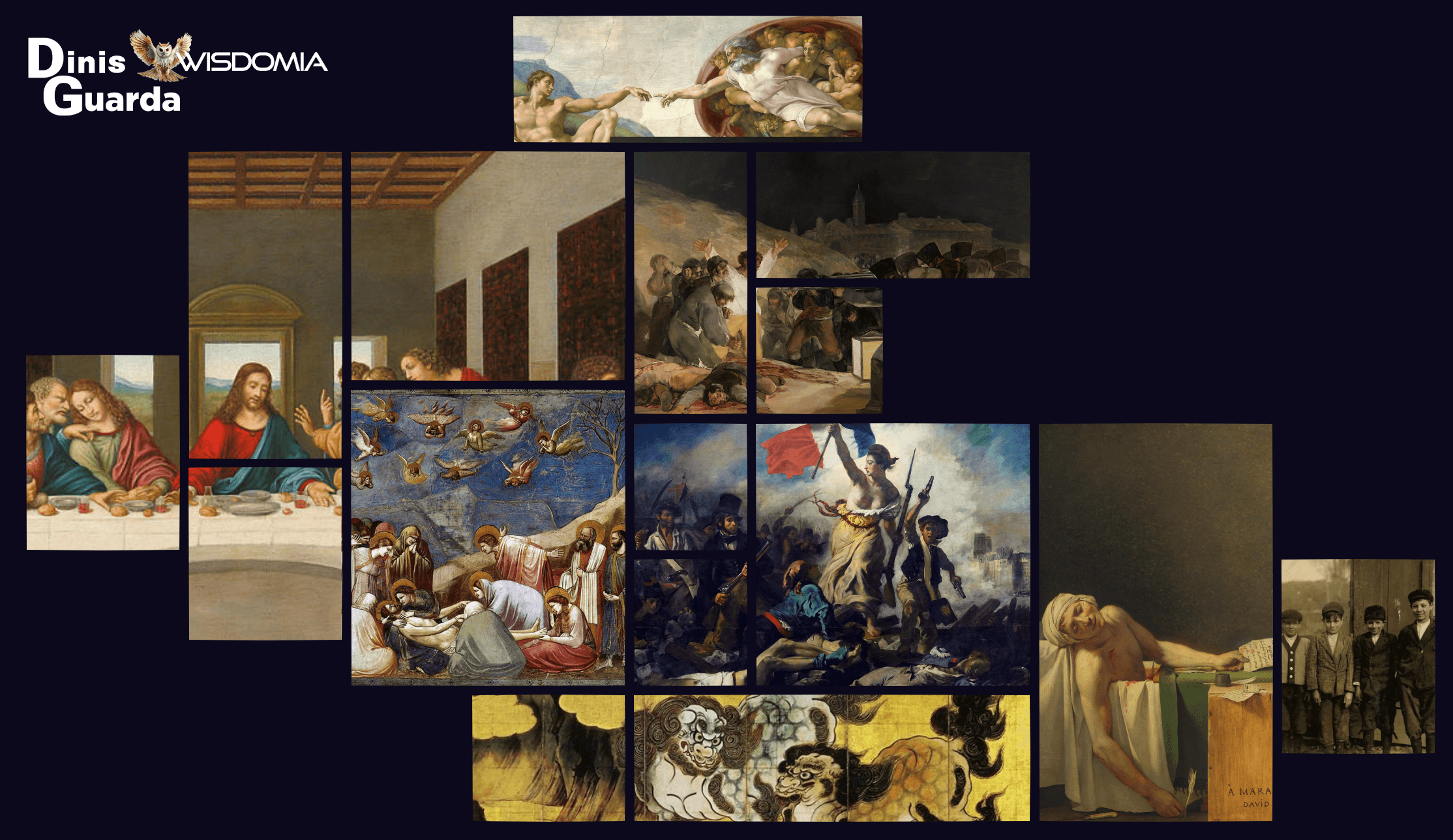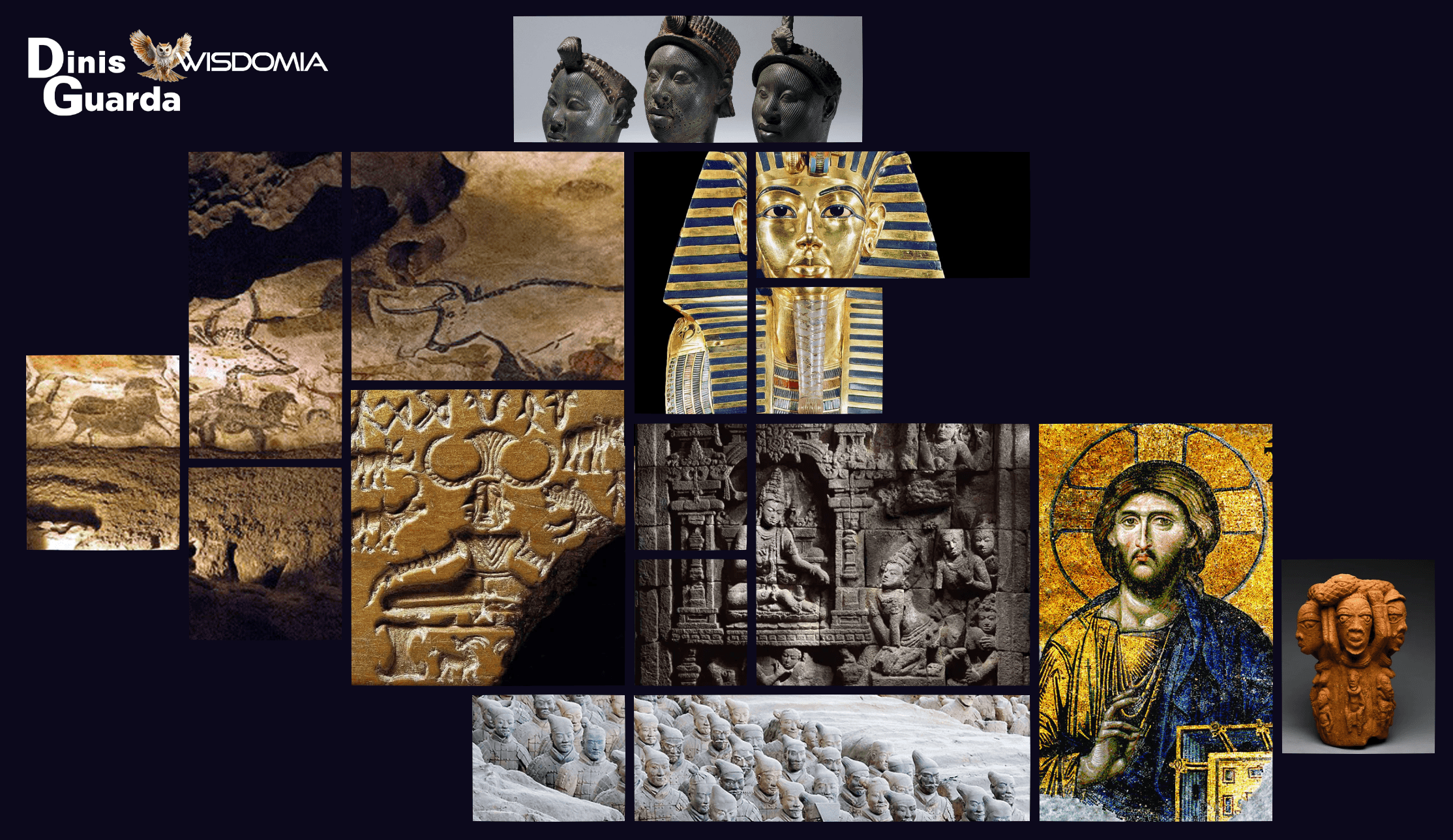Philosophical Questions That Have Shaped Human Thought
Himani VermaContent Contributor
Tue Sep 16 2025

What if everything you know is wrong? For millennia, humanity's greatest minds have grappled with questions that redefine reality itself. From free will to the nature of time, these 8 philosophical questions that shaped civilisation, and why they matter more than ever in the age of AI.
Have you ever found yourself lying awake at night, staring at the ceiling, and wondering about the big questions of existence? What's the meaning of life? Do we truly have free will? Why is there something rather than nothing?
These questions aren't just random musings, they're the fundamental philosophical inquiries that have shaped human thought for millennia. From ancient Greek philosophers to modern British thinkers, these questions have driven intellectual revolutions, scientific discoveries, and profound changes in how we understand ourselves and our place in the universe.
Philosophy isn't just an abstract academic discipline confined to university classrooms. It's the love of wisdom that permeates our daily lives, influencing everything from our moral choices to our political systems. The word itself comes from the Greek philosophia, meaning "love of wisdom," and philosophical questions are those that pursue a deep understanding of the subject examined, often without straightforward answers .
As we journey through some of the most influential philosophical questions that have shaped human thought, we'll discover how these inquiries have not only defined entire eras of intellectual history but continue to challenge and inspire us today.
10 philosophical questions that have shaped human thought
1. What is the meaning of life?
Perhaps the most enduring and universal question in philosophy, the question of life's meaning has intrigued thinkers for centuries. From ancient Greek philosophers like Socrates and Plato to modern existentialists such as Jean-Paul Sartre and Albert Camus, this question still captures the human imagination.
In the early 5th century BCE, Socrates famously said that “the unexamined life is not worth living.” This statement suggests that understanding the meaning of life doesn’t always come from outside sources. Instead, it comes from a deeper understanding of oneself and one’s place in the world. For Plato, meaning could be found in the pursuit of knowledge and the ideals of justice. For Camus, life’s meaning was found in facing the absurdity of existence and choosing to live with defiance.
In modern times, some people seek answers in religion while others, like existentialists, believe that life’s meaning is something we create for ourselves. This question encourages us to reflect on our values, goals, and relationships. It also prompts us to think about how we choose to live our lives. Although it may not have one clear answer, it sparks discussions about purpose, fulfilment, and the nature of human existence.
2. What is reality?
We all experience the world around us through our senses, but how can we be sure that what we see, hear, and feel is truly real? This question goes back to the ancient Greeks, but it was the philosopher René Descartes in the 17th century who raised it most famously with his statement: Cogito, ergo sum ("I think, therefore I am"). Descartes questioned everything, his senses, the physical world, and even his own existence. He concluded that the very act of doubting proved his existence as a thinking being.
However, the question of reality didn't stop there. Throughout history, philosophers have debated whether what we perceive is just an illusion or if there is an objective reality beyond our senses. Immanuel Kant, in the 18th century, suggested that reality is not as it appears to us but is shaped by our perceptions. He argued that the mind plays an active role in interpreting the world, meaning we can never truly know reality as it exists independently of us.
In modern times, with the rise of virtual reality, artificial intelligence, and simulations, the line between the real and the imagined has blurred even more. Philosophers continue to grapple with the nature of reality, especially as technology advances and leads us to question what makes experiences real.
3. What does it mean to be human?
Throughout history, philosophers have asked what makes us human. Is it our ability to reason, our capacity for language, or our sense of morality? In ancient philosophy, Aristotle described humans as "the rational animal." He believed that our ability to reason distinguishes us from other species.
In the 20th century, thinkers like Sartre and Heidegger focused more on personal choice and individuality as key parts of being human. Sartre, in particular, stated that "existence precedes essence." This means that humans are not born with a set purpose but create their identity through their actions and choices.
As science has progressed, especially in neuroscience and genetics, we’ve gained a better understanding of the biological and psychological aspects of being human. But as we learn more about our evolutionary past and genetic structure, we still wonder: What sets us apart from other creatures? Is it our ability to create art, build complex societies, or simply our awareness of mortality?
4. What is morality?
The question of what is right and wrong has engaged thinkers for thousands of years. From the ancient Greeks to modern philosophers, morality continues to inspire intense debate. Is morality objective and universal, or is it subjective and relative?
In ancient Greece, Socrates and Plato discussed the nature of justice and virtue. Aristotle’s Nicomachean Ethics provided practical advice on living a moral life, emphasising the importance of achieving balance through the development of good character. For Aristotle, moral actions were those that matched reason and led to flourishing.
In modern times, philosophers like Immanuel Kant and John Stuart Mill presented different ideas on defining morality. Kant believed in absolute moral laws, famously stating that one should act in a way that could be applied universally. In contrast, Mill’s utilitarianism suggested that actions are morally right if they generate the greatest happiness for the greatest number of people.
Today, ethical issues like climate change, artificial intelligence, and bioethics challenge us to rethink how we define right and wrong. Is morality shaped by culture and context, or is there a universal moral truth that applies to everyone, no matter the time or place?
5. Do we have free will?
The question of free will is among the most hotly debated topics in philosophy. Are we free to make our own choices, or are our actions determined by factors beyond our control, such as biology, society, or even destiny?
In the 18th century, philosopher Jean-Jacques Rousseau argued that humans are born free but are "everywhere in chains." He meant that social structures and institutions limit our freedom. Meanwhile, determinists like Baruch Spinoza and, more recently, neuroscientists like Sam Harris, claim that free will is an illusion. They believe our thoughts and actions are determined by prior causes, whether biological or environmental.
On the other hand, existentialists like Sartre promoted the idea that we are free to create our own meaning and make choices that define who we are. For them, the struggle to define our freedom is essential to the human experience.
In today's world, free will ties into issues of responsibility, justice, and personal accountability. Can someone be held morally responsible for their actions if they were not free to choose differently? This ongoing debate continues to affect many areas, from criminal justice to personal growth.
6. What is consciousness?
Consciousness, or the state of being aware of and able to think about one’s own existence, is a lasting question in philosophy. What does it mean to be conscious? How do we experience the world from our unique perspective? Is consciousness something that can be explained solely by physical processes in the brain, or is there more to it?
René Descartes’s famous saying Cogito, ergo sum suggests that our consciousness is key to our identity. However, philosophers like David Chalmers have challenged how consciousness arises from the brain’s complex processes in the modern era. The so-called “hard problem” of consciousness remains one of the biggest mysteries in philosophy.
Recent advances in neuroscience have provided insights into how the brain processes information. Still, they have not fully explained why or how subjective experiences come about. As artificial intelligence continues to grow, the question of whether machines could ever be truly conscious introduces an interesting new aspect to this discussion.
7. What is the nature of time?
Time is a concept that influences everything in our lives, yet it is hard to define. Is time a physical, measurable thing, or is it something more abstract? Do we experience time in a straight line, or is it more fluid and adaptable?
In ancient Greek philosophy, Heraclitus famously said that "everything flows," implying that time is always changing. For him, change is the only constant, and our understanding of time must shift with this reality. In modern physics, Albert Einstein's theory of relativity changed how we view time, indicating that it is not fixed but depends on the observer’s perspective.
Philosophers like Martin Heidegger and Henri Bergson presented different ideas, claiming that time should be seen as a lived experience, not just a mechanical or mathematical one. In everyday life, we experience time in various ways; sometimes it seems to fly by, while other times it moves slowly. The nature of time is as much about how we perceive it as it is about how it truly functions.
8. Is there a God?
The question of God's existence is a key topic in philosophy and theology. Does a divine being exist? If so, what is the nature of that being? Theists believe in God’s existence, atheists reject it, and agnostics are unsure.
Many philosophers have explored the argument for God’s existence. Thomas Aquinas presented five "proofs" based on the ideas of causality, motion, and contingency. In contrast, philosophers like Friedrich Nietzsche stated that "God is dead." This reflects his belief that modern society no longer needs a divine explanation for the world.
In modern philosophy, the existence of God continues to be a contentious issue. Discussions often focus on the problem of evil. If God is all-powerful and kind, why is there so much suffering in the world?
Final thoughts
Philosophical questions are not just old ideas found in dusty books; they are significant to how we understand ourselves, our societies, and our place in the universe. These questions push us to think critically, challenge our assumptions, and seek a deeper understanding of the world around us.
From the meaning of life to the nature of reality, questions from philosophers still shape human thought and influence our daily lives. As we explore these timeless questions, we discover more about the world and learn more about ourselves, including our values, beliefs, and ability to think. These questions may not have simple answers, but the quest for these answers is what makes philosophy an essential part of the human experience.
previous
Kew Gardens Unveils Revolutionary Exhibitions: Where Art, History, and Colonial Truth Converge
next
Understanding the Impact of Cognitive Biases on Your Daily Decisions
Share this

Himani Verma
Content Contributor
Himani Verma is a seasoned content writer and SEO expert, with experience in digital media. She has held various senior writing positions at enterprises like CloudTDMS (Synthetic Data Factory), Barrownz Group, and ATZA. Himani has also been Editorial Writer at Hindustan Time, a leading Indian English language news platform. She excels in content creation, proofreading, and editing, ensuring that every piece is polished and impactful. Her expertise in crafting SEO-friendly content for multiple verticals of businesses, including technology, healthcare, finance, sports, innovation, and more.
More Articles

IQ, EQ and SQ: Why Education Ignores the Third Axis

The Digital Convergence: When Images Became Everything, Everywhere, All at Once

Modern Revolutions and the Digital Explosion: Images That Shattered and Rebuilt Reality

Renaissance Humanism and the Birth of the Modern Gaze: Images That Taught Us to See Ourselves

When Vision Becomes Destiny: The First 25 Images That Shaped Human Consciousness





